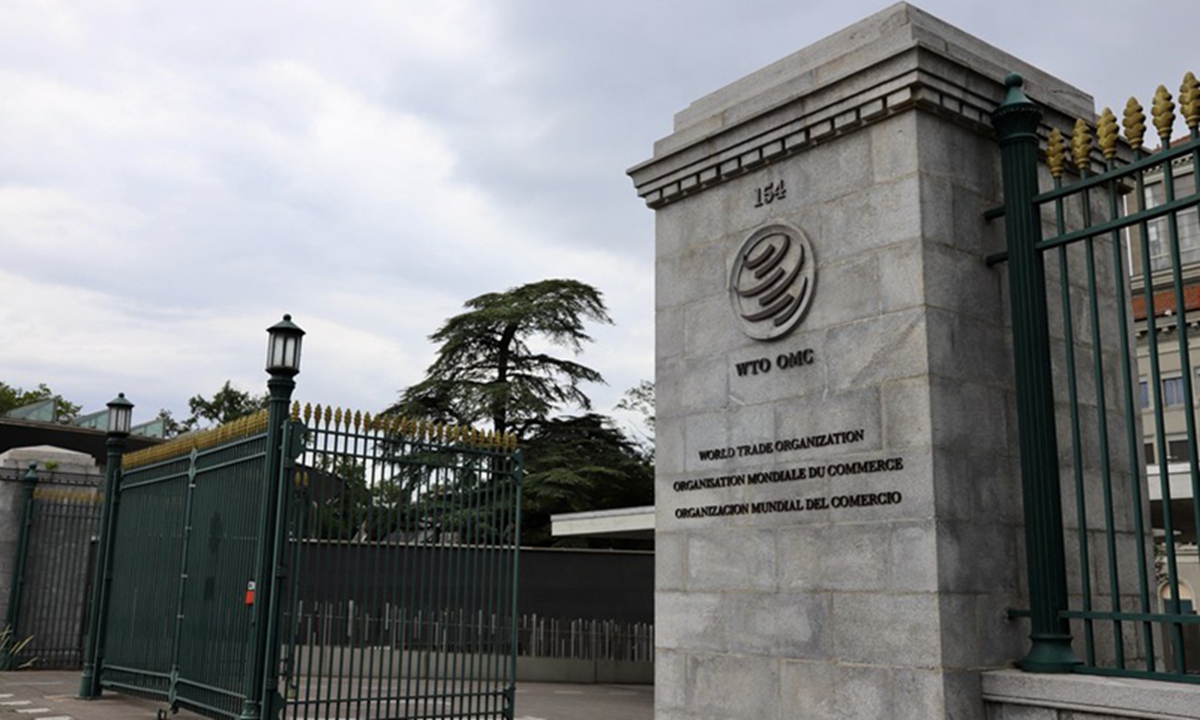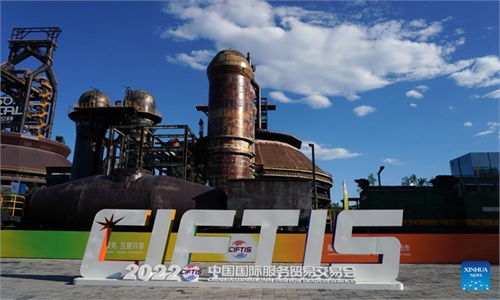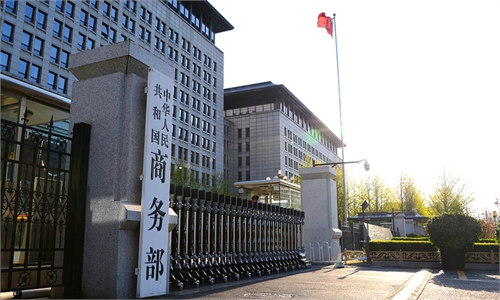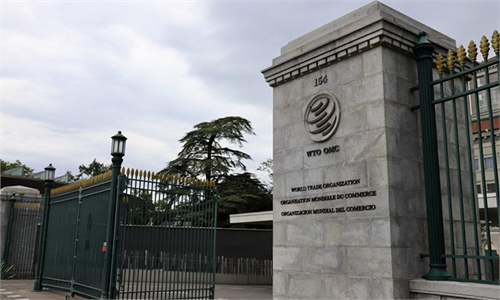
Photo: Xinhua
Members of the World Trade Organization (WTO) on Friday substantially concluded the text negotiations on Investment Facilitation for Development (IFD), the first negotiation topic set up and actively led by China in the WTO.It means there are "only steps away from concluding the first investment negotiation in the WTO and at a global level," according to China's Ambassador to the WTO Li Chenggang, the Xinhua News Agency reported on Saturday.
More than 110 WTO members signed and participated in the negotiation of the IFD, which shows that investment facilitation remains the consensus of most economies around the world and that promoting development through opening-up and cooperation remains the mainstream of the global economic development.
An important change in globalization is that global sustainable development, including the development of developed economies, can not be separated from the development of developing countries.
In April 2017, China and a group of developing and least-developed WTO members launched an informal dialogue on investment facilitation, Xinhua reported, adding that the IFD agreement will encourage developing countries to attract more foreign direct investment (FDI) and create more job opportunities.
The past few years saw developing countries, particularly Asian ones, attract increasing amounts of FDI. According to the UN Conference on Trade and Development (UNCTAD) World Investment Report 2022, FDI flows to developing economies increased by 30 percent to $837 billion in 2021, among which a record $619 billion flowed to developing economies in Asia, up 19 percent.
Yet, the chances of that upswing being interrupted are rising as a combination of pandemic and geopolitical factors have led to global economic slowdown and growing recession fears. Moreover, with developed economies such as the US and the EU working to restructure supply chains, developing economies will have to face more risks and challenges.
Against this backdrop, fairer and more equitable global investment rules will be of great importance for the developing world to weather the turbulent times and achieve their own development. Meanwhile, an expansion in the scale of cross-border investment could also help create more market demand for developed economies, thus injecting more growth impetus into the development of the world economy.
According to media reports, the IFD agreement will help improve the transparency of investment-related information, increase the predictability of investment and streamline the investment process, which are crucial for investors in the developed economies and recipients in developing economies.
China has been not only an extremely productive member during IFD negotiations, but also an important source of outbound investment. China's outbound investment has been growing in leaps and bounds. The country has made investment not only to high-income countries, but also to many low-income countries, which has become a main source of investment for many developing Asian economies. Moreover, there is still considerable potential for China's outbound investment growth to rise even further.
With the Chinese economy set to rebound in the coming year, it could be expected that Chinese investment will also offer more vigor to the global economy. Therefore, China's more active participation in the restructuring of global trade and investment rules will be an inevitable trend, which not only meets its own needs but also is in the interests of more developing countries.



